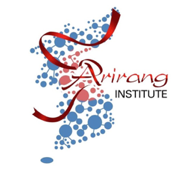中대사 "한국에 美 전략무기 배치 땐 어떤 후과 가져올지 상상할 수 있을 것"
Chinese Ambassador: "You can imagine what kind of consequences it would bring to South Korea for deploying U.S. strategic weapons."
노석조 기자
사드 이상의 보복 경고하는 발언.. 왕이 외교부장은 내달 4일 訪韓
More THAAD retaliation...Chinese Foreign Minister Wang Yi to visit South Korea on December 4th
추궈훙(邱國洪·사진) 주한 중국대사가 28일 "미국이 한국 본토에 중국을 겨냥하는 전략적 무기를 배치한다면 어떤 '후과(後果)'를 가져올지 여러분도 상상할 수 있을 것"이라고 말했다. 한국이 미국의 중거리 미사일을 배치할 경우 사드(THAAD) 사태 이상의 보복을 당할 수 있으니 주의하라는 경고로 해석됐다. 외교 소식통은 "미 중거리 미사일의 한국 배치는 아직 제대로 논의조차 되지 않았는데, 중국이 일찌감치 사전 경고에 나선 것"이라며 "앞으로 안보 문제에 대한 중국의 압박이 더 거세질 것"이라고 했다.
Chinese Ambassador to South Korea Qiu Guohong said on November 28th, “that if the U.S. deploys strategic weapons targeting China on the South Korean mainland, you can imagine what "bad aftermath" it would bring.” The move was interpreted as a warning to South Korea to be cautious, as South Korea could face retaliation beyond the THAAD deployment if the U.S. deploys a mid-range missile. A diplomatic source said “that the deployment of a U.S. mid-range missile in South Korea has not even been properly discussed, but China has issued an early warning, adding that China's pressure on security issues will be stronger in the future.”
추 대사는 이날 여의도 국회의원 회관에서 열린 포럼에서 "미국이 중거리핵전력(INF) 조약을 탈퇴하면서 '중국이 중거리 미사일 계획이 있다'는 식의 핑계를 댔다"면서 "중국은 소수의 중거리 미사일을 가졌지만 방어용"이라고 했다. 그러면서 "중국은 미국의 INF 조약 탈퇴에 반대하고 중국 주변에 중국을 겨냥한 중거리 미사일 배치를 반대한다"며 "중거리 미사일 문제에 대해 한국 정부가 충분히 정치적 지혜를 갖고 있기 때문에 잘 대응할 수 있을 거라 믿는다"고 했다.
"As the U.S. withdrew from the Intermediate-Range Nuclear Forces Treaty (INF), China has a plan for medium-range missiles," Ambassador Choo said at a forum held at the National Assembly building in Yeouido.
"China has a handful of medium-range missiles, but only for defense." China opposes the U.S. withdrawal from the INF treaty and opposes the deployment of mid-range missiles targeting China near China. I believe that we can respond well to the medium-range missile issue because the Korean government has enough political wisdom.”
이런 가운데 왕이(王毅) 중국 외교부장이 다음 달 4∼5일 한국을 공식 방문한다고 외교부가 이날 발표했다. 왕 부장의 방한은 2016년 사드 보복 사태 이후 처음이다. 문재인 대통령은 2017년 10월 굴욕적이란 비난을 감수하고 사드 추가 배치와 미국 미사일방어체계 참여, 한·미·일 군사동맹 불가 등 '3불(不)' 약속을 중국과 하고 방중했다. 하지만 2년여가 지난 지금까지 시진핑 주석의 한국 답방은 이뤄지지 않고 있다. 왕 부장이 이번에 시 주석 방한 카드를 제시하며 중거리 미사일과 화웨이 문제 등 각종 청구서를 내놓을 수 있다는 관측도 나온다.
Amid such developments, Chinese Foreign Minister Wang Yi will make an official visit to South Korea from December 4-5, the Foreign Ministry announced. Wang's visit to Seoul is the first of its kind since the THAAD retaliation in 2016. In October of 2017 President Moon endured humiliating criticism when he visited China making the "three no" promise with China: including no further deployments of additional THAAD, no participation in the U.S. missile defense system, and no military alliance between South Korea, the U.S., and Japan. However, two years later, President Xi Jinping has not visited South Korea. Some observers say that Wang could reveal offers to ensure a President Xi visit to South Korea: this would likely include agreements related to mid-range missile deployments and Huawei.

